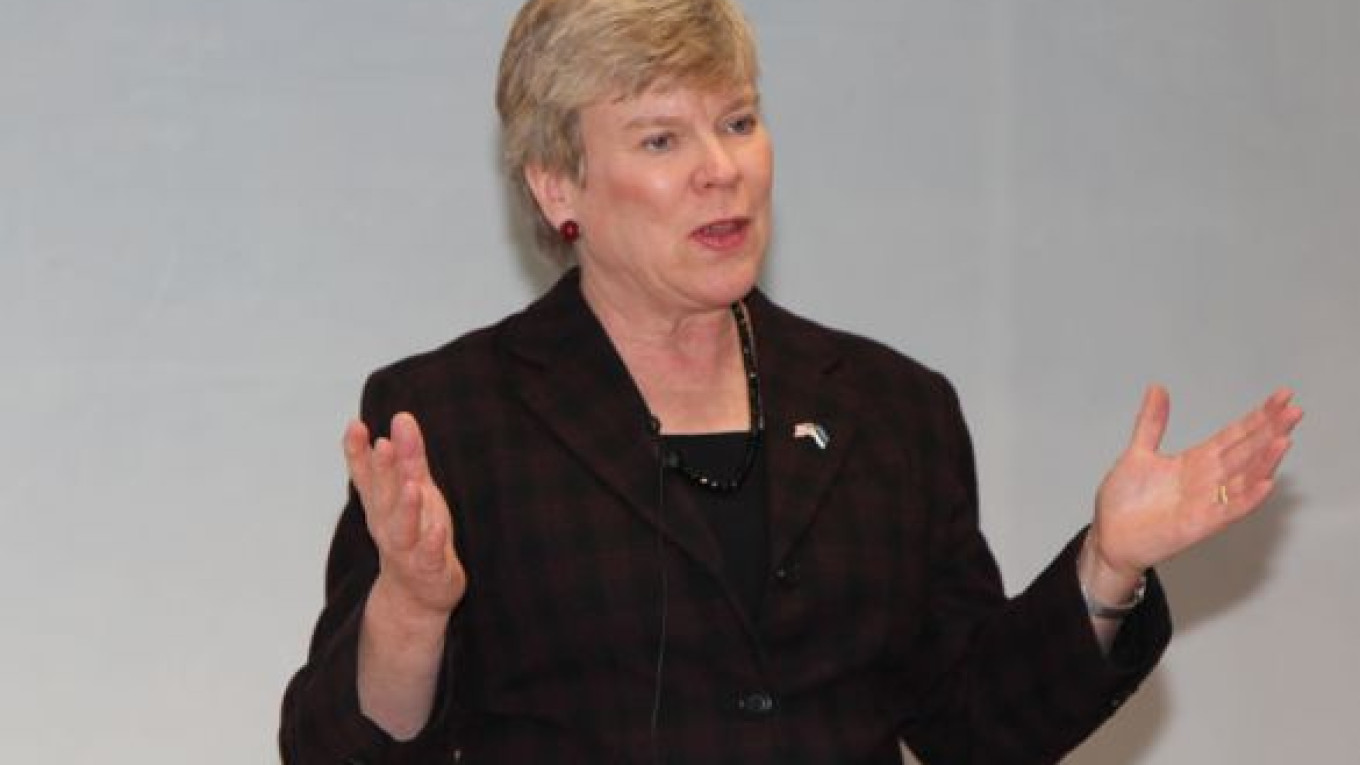Despite repeated calls for cooperation and resolute declarations of common goals, long-standing divisions and divergent views on the nature of security were still visible between Russian and Western officials at the Moscow European Security Conference on Thursday.
The annual conference, organized for the second time by the Defense Ministry, brought top European security policymakers and experts together to "formulate mutually acceptable measures to enforce equal security in Europe."
In his address to conference participants, read out by chief of staff of the presidential administration Sergei Ivanov, Russian President Vladimir Putin identified global missile defense, NATO expansion and control over conventional forces as the key areas of disagreement between Russia and the West.
Ivanov himself singled out missile defense as the most pressing issue, saying that in no other area have Russian disagreements with NATO — and with the U.S. in particular — been more pronounced than on the subject of missile defense in Europe.
Russia sees U.S. plans to install missile defense assets in Poland and Romania as a threat to its nuclear deterrent potential, while America's view is that "missile defense is specifically and definitely limited," and thus incapable of hindering Russia's defense abilities, said the U.S. chief missile defense negotiator, Acting Under Secretary of State Rose Gottemoeller.
The sides have repeatedly tried to overcome this deadlock, with the most recent instance being the letter handed by Security Council Secretary Nikolai Patrushev on behalf of President Putin to U.S. President Barack Obama. The letter was a reply to another letter earlier brought to Moscow by national security advisor Tom Donilon.
Both letters contained declarations of a desire to cooperate on pending issues, but so far, no concrete steps have been made, with Russian officials reiterating their insistence on having legally binding guarantees that future U.S. missile defense systems will not be directed against the country.
The U.S. administration has repeatedly said it is unable to provide such guarantees, since this would mean that future U.S. presidents would have to live by Obama's commitments.
The lack of trust that Defense Minister Sergei Shoigu called "a vestige of the Cold War" was identified as a major obstacle preventing further cooperation.
One reason for the trust deficit may be the two sides' divergent views on security. While Russian Foreign Minister Sergei Lavrov stressed that "attempts to strengthen security at the expense of your partners will only lead to unnecessary tensions," Western speakers emphasized that security is not a zero-sum game.
In addition, Gottemoeller said that "indivisible security should be based on human rights,"? touching upon an issue that has long been a bone of contention between Russia and the West.
Secretary-General of the Organization for Security and Cooperation in Europe Lamberto Zannier offered the OSCE as a platform to resolve these and other difficulties, noting that countries from such regional security organizations as the CSTO, NATO and the EU, are also members of the OSCE.
"States cannot confront transnational threats like terrorism, drug trafficking and cyber-security challenges alone," he said.
Igor Korotchenko, editor of the National Defense magazine, said the friction seen at the conference was in fact not indicative of any hostility, but natural rivalry between the U.S. and Russia, rivalry that is the result of "a democratic choice of the Russian people."
Contact the author at [email protected]
A Message from The Moscow Times:
Dear readers,
We are facing unprecedented challenges. Russia's Prosecutor General's Office has designated The Moscow Times as an "undesirable" organization, criminalizing our work and putting our staff at risk of prosecution. This follows our earlier unjust labeling as a "foreign agent."
These actions are direct attempts to silence independent journalism in Russia. The authorities claim our work "discredits the decisions of the Russian leadership." We see things differently: we strive to provide accurate, unbiased reporting on Russia.
We, the journalists of The Moscow Times, refuse to be silenced. But to continue our work, we need your help.
Your support, no matter how small, makes a world of difference. If you can, please support us monthly starting from just $2. It's quick to set up, and every contribution makes a significant impact.
By supporting The Moscow Times, you're defending open, independent journalism in the face of repression. Thank you for standing with us.
Remind me later.


